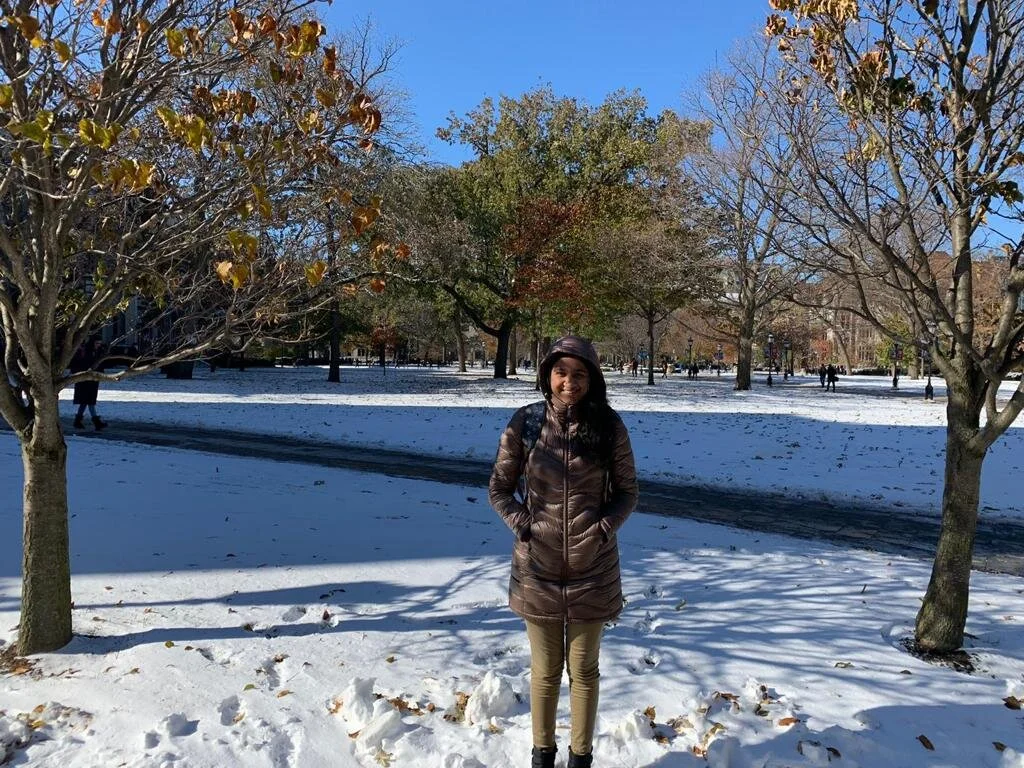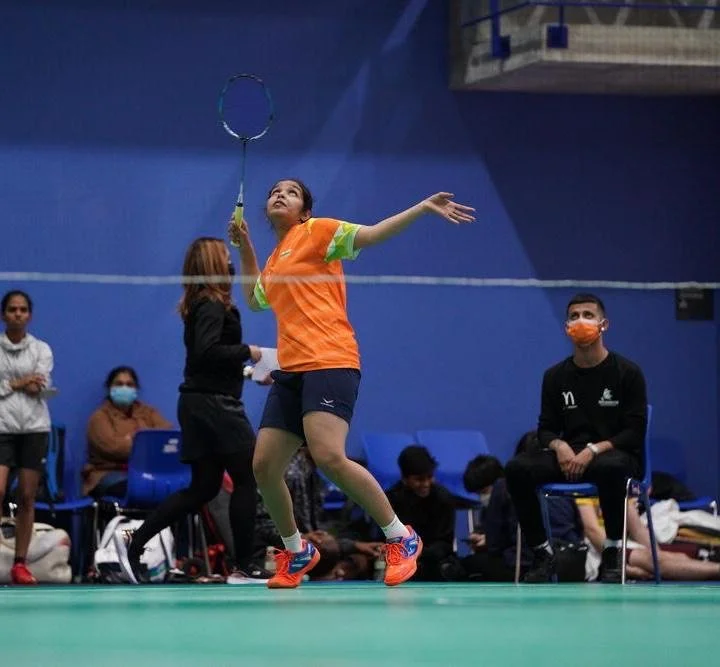Alumna Update: Shruthi Ramesh
Shruthi Ramesh is a 2019 scholar who pursued an MA in Public Policy at the University of Chicago.
This week she shares with us her learnings from projects conducted in Chhattisgarh, Delhi and Chennai and how her time in the windy city enabled her to view public policy through a new lens.
About two years ago, on the day I heard that I had been awarded the Inlaks scholarship for pursuing my graduate studies in the US, I remember feeling a surge of emotions. I was happy, excited, relieved, thankful. I was eager to explore the limitless possibilities that came with being a student of public policy at the University of Chicago – from engaging with brilliant people to enjoying the architectural beauty of the city. After I arrived in Chicago, the first few months of my Master’s program flew by in me trying to juggle between my PhD-level coursework, hunting for a research mentor and braving the notorious weather of the Windy City. Right when I was starting to ease into the new lifestyle, I found myself in the midst of a global pandemic. Until then, I hadn’t understood the true value of my scholarship. With many members of the student community undergoing unprecedented levels of stress to make ends meet, I could truly appreciate the value of the support I was receiving. I realized then that the scholarship had endowed me with another feeling, one that I had not paid attention to earlier. This was a feeling of empowerment - I had, by virtue of the scholarship, the agency to immerse myself in enriching experiences and to make better decisions without being halted by unnecessary stress.
This self-reflection on how the scholarship has enriched my student experience by allowing me to feel empowered turned out to be a crucial one, as it helped me view public policy through a whole new lens. I could now start viewing welfare interventions from the perspective of well-being, where inducement of the feeling of leading an empowered life, a better life, is the metric by which the success of a policy is measured.
I found myself applying this lens to my field projects - leading me to arrive at intriguing questions that kept me thinking on the darkest days of the pandemic. For instance, during the summer of 2020, I worked on a project in rural Chhatisgarh which attempted to make technology more accessible to women. We would give underprivileged women their own mobile phones and periodically send them information about schemes and benefits they were eligible for. Undoubtedly, such information is expected to directly benefit these women and their families in accessing services provided by the government. However, what interested me more is how this information made the women feel. Does it make them more confident in their interactions and does it empower them to actively participate in decision making?
In another project, I toured the slums of Delhi and Chennai to understand the state of menstrual hygiene management among adolescent girls. While I observed the lack of awareness or the access to facilities to follow optimal hygiene practices, I could see that they felt guilty and under confident to attend school or work during their period. Yet again, it made me think if access to sanitary napkins or the knowledge of why menstruation occurs had a deeper underlying purpose – that of empowering women and making them feel more confident about themselves.
To study these effects properly, however, I question the capability of conventional quantitative research. I don’t mean to come across as a skeptic of these methods. In fact, I am an enthusiastic student of econometrics and I am deeply intrigued by theories of causal inference. Nevertheless, I have grown aware that there is a limit to the stories a regression equation can tell when not supplemented by qualitative findings. I feel the pressing need for economics as a discipline to focus on the qualitative as much as the quantitative, given the rich insights the former has to offer in terms of capturing the states of mind that ultimately determine well-being. Moreover, I see the need for public policy debates to shift their focus from service provision to holistic empowerment of the target population. On that note, I am curious to know the effects of a social protection scheme that distributes a proportion of the country’s income equally to all its citizens. In particular, would that scheme help relieve stress and smooth out consumption patterns among the poorest of the poor and empower them to focus on productive decision making? Or will it do the opposite and encourage people to steer away from making productive decisions?
My next job at JPAL South Asia focuses on answering these questions. The initiative involves distributing a proportion of India’s income equally among all its citizens and is going to be piloted in some districts of Odisha. I am excited to figure out how to implement this project on a massive scale and eager to understand its short-term and long-term impacts. Given my expanded perspective that stemmed from a realisation of how this scholarship truly helped me, I know that I will define impact in a more comprehensive manner, encompassing the significant aspect of feelings. I look forward to being on the field and continuing to gather invaluable insights on public policy.






